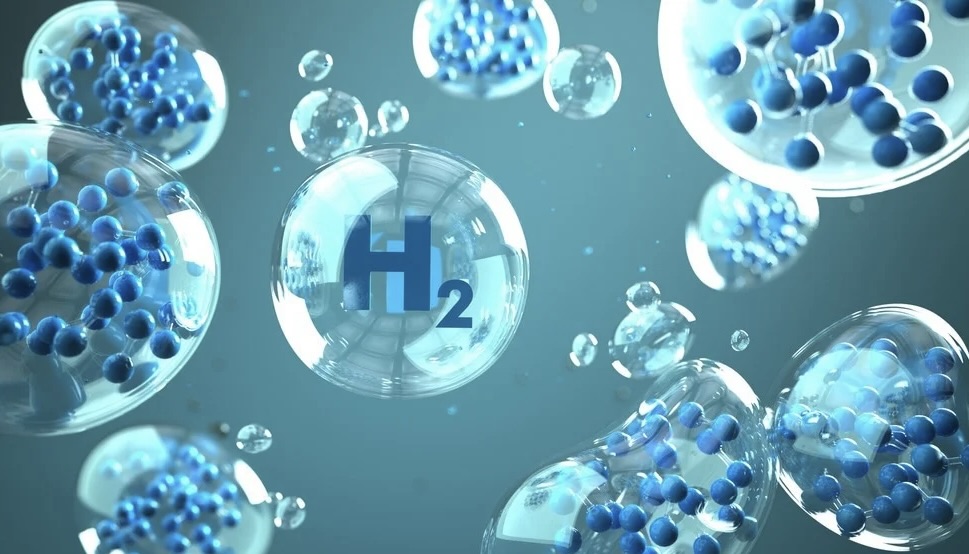Recovering hydrogen from waste generates clean fuel and helps deal with the growing amount of non-recyclable waste polluting our environment.
 Image Credit: Alexander Limbach/Shutterstock.com
Image Credit: Alexander Limbach/Shutterstock.com
Waste-to-Hydrogen: A Single Solution to Multiple Problems
As the global population and living standards continue to expand, so does the consumption of commodities and energy. Globalization’s escalating economic growth has been accompanied by an equal rise in energy consumption, reaching unparalleled levels in history. On the other hand, due to growing commodities, waste generation has been accelerating.
Faced with these problems, there is a growing consensus on the need to develop a new energy model which will simultaneously address these issues and stimulate the economy. One such solution is to generate hydrogen fuel from waste.
Waste-to-hydrogen technology provides low-carbon, clean energy while dealing with non-recyclable waste, a win-win situation for climate protection and the waste management industry.
Several waste-to-hydrogen projects are already running, and more are in development.
Methods to Extract Hydrogen from Non-Recyclable Waste
Cold plasma pyrolysis
Pyrolysis is a heat treatment process that decomposes materials at temperatures between 400 °C and 650 °C without oxygen. Any plastic can be turned into valuable chemicals and energy using cold plasma pyrolysis.
Plastic waste pyrolysis with cold plasma produces methane, ethylene, and hydrogen. Methane and hydrogen can be used as clean fuels as they create negligible amounts of hazardous substances such as unburned hydrocarbons, soot, and carbon dioxide.
Pulverization of plastics
A group of researchers from the UK, Saudi Arabia, and China devised a technique for transforming plastic trash into hydrogen gas and carbon nanotubes.
The plastic is pulverized using microwaves with iron and aluminum oxide as catalysts. Microwaves enable the indirect heating of plastics by the catalysts, which prevents unwanted side reactions, making the procedure more efficient.
Extraction using light
Petrochemical and other industries produce thousands of tons of hydrogen sulfide gas annually as a by-product. Unfortunately, it is an expensive, toxic, and non-recyclable gas.
Researchers from Rice University developed a technology to convert hydrogen sulfide into usable hydrogen using light. They used gold nanoparticles that generate short-lived, high-energy electrons when exposed to photons to catalyze the hydrogen sulfide conversion reaction.
The process is economical and does not require high implementation costs while demonstrating the high efficiency of extracting valuable resources from waste.
Latest Non-Recyclable Waste-to-Hydrogen Projects
The University of Manchester to recover hydrogen fuel from non-recyclable waste
A novel and cost-effective hydrogen separation technology will be developed by the combined efforts of Powerhouse Energy and Dr. Amir Keshmiri’s team from the University of Manchester.
The process involves advanced thermal treatment to recover hydrogen from non-recyclable waste. This innovative technology might be a huge asset for assuring an endless supply of clean, affordable energy for the United Kingdom.
Egypt to build 1 GW waste-to-hydrogen plant
The Suez Canal Economic Zone General Authority has granted preliminary approval to H2-Industries to build a 1 GW hydrogen production center in Port Said East.
H2-Industries plans to produce 300,000 tons of green hydrogen from approximately 4 million tons of non-recyclable-waste products for half the current cost of green hydrogen.
H2-Industries employs liquid organic hydrogen transportation technology to create hydrogen from non-recyclable waste such as food waste, plastic, and sewage sludge using integrated thermolysis plants with pre-assembled scalable modules.
The company claims its facility in Egypt will help stimulate a circular economy model while diversifying the country’s energy mix for sustainability, decarbonization, energy security, and climate change mitigation.
PEEL NRE announces plans to upcycle waste plastic to hydrogen in Scotland
Peel NRE, a division of Peel L&P, intends to construct a hydrogen-from-plastic waste facility in West Dunbartonshire. The £20 million plant will convert non-recyclable plastic into sustainable local hydrogen fuel for local automobiles, buses, and heavy vehicles.
Middle East’s first waste-to-hydrogen plant
A formal agreement has been reached between UK-based Chinook Sciences and BEEAH Energy, a subsidiary of BEEAH Group, to begin the development of the Middle East’s first waste-to-hydrogen plant. The facility’s goal will be to produce high-quality activated carbon and affordable, ecologically friendly hydrogen.
Chinook’s RODECS pyrolysis and gasification technology will process non-recyclable plastic and wood waste to produce 18,000 kg of green hydrogen daily.
Environmentally friendly hydrogen production will be substantially less expensive than fossil fuel production. In addition, the factory will be equipped with a hydrogen filling station that can deliver hydrogen fuel to several trucks and buses daily.
Future of Waste-to-Hydrogen Production
Current renewable energy sources such as wind and solar power will not be sufficient to decarbonize the constantly growing world economy.
The waste-to-hydrogen technology has a significant role in the global transition towards carbon neutrality by replacing carbon-emitting fossil fuels with affordable renewable energy. However, further progress depends on large-scale investment, support, and public awareness of replacing fossil fuels with low-carbon alternatives.
